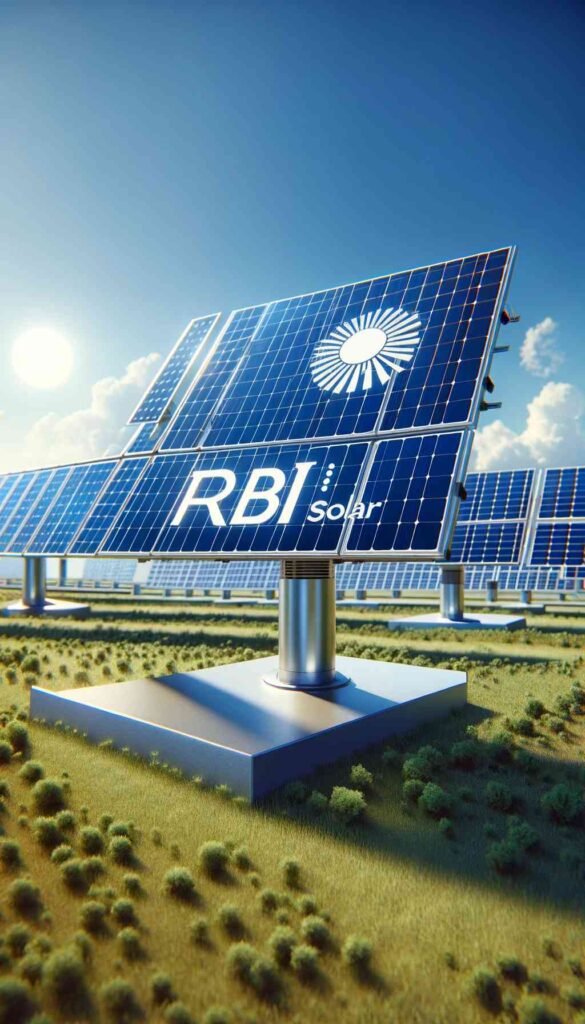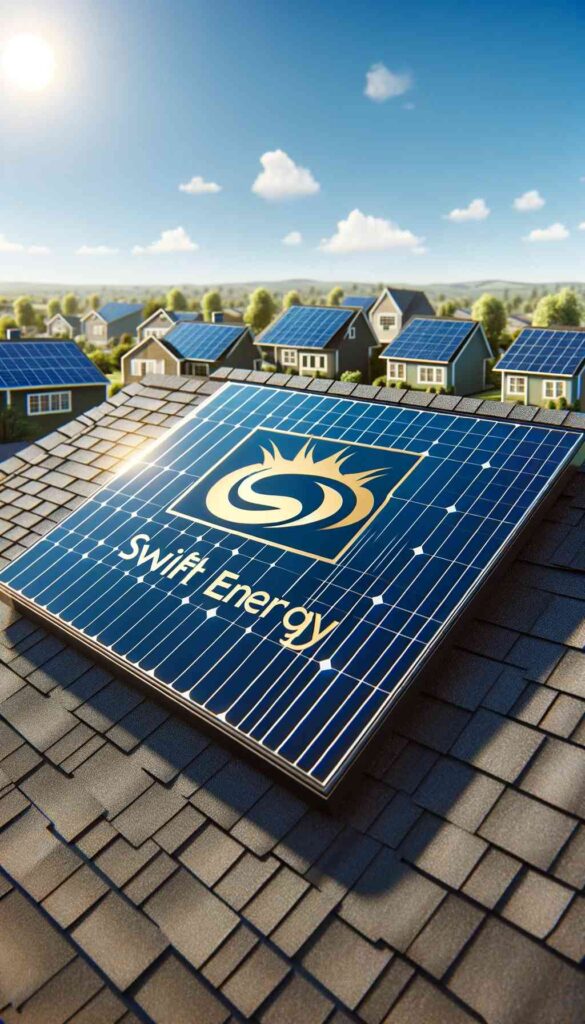
Key Takeaways
- Free solar programs often involve solar leases or power purchase agreements (PPAs), not outright ownership.
- These programs can eliminate upfront costs but may reduce long-term savings.
- Government incentives and tax credits can significantly lower the cost of solar panels.
- Understanding contract terms is essential to avoid unexpected costs.
- Solar energy can increase your home’s value and reduce your carbon footprint.
Is Free Solar Power Right for Your Home?
Deciding if free solar power is suitable for your home requires careful consideration of various factors. First, you must understand what “free” really means in the context of solar energy. It’s essential to examine the benefits and drawbacks of these offers and how they function.
Understanding Free Solar Offers
When companies advertise free solar panels, they’re often referring to solar leases or PPAs. In these arrangements, a solar provider installs panels on your roof at no initial cost. You then pay for the electricity they generate, typically at a lower rate than your local utility company.
Exploring Benefits and Drawbacks
The primary advantage of these programs is the elimination of upfront costs. You can enjoy the benefits of solar energy without making a significant financial investment. However, there are some drawbacks to consider. With a lease or PPA, you do not own the solar panels, meaning you may miss out on certain financial incentives like tax credits.
While you may save on energy bills, the overall savings might be less than if you purchased the panels outright. It’s important to weigh these pros and cons to determine if a free solar program aligns with your financial goals.
How Free Programs Work
Free solar programs typically involve a contractual agreement with a solar company. The company installs and maintains the solar panels on your roof, and you agree to purchase the electricity generated. The terms can vary significantly between providers, so it’s important to read the fine print carefully.
Most importantly, be sure to understand the duration of the contract and any potential rate increases. Some agreements may include clauses that allow the provider to raise rates over time, which could impact your long-term savings.

Unpacking Free Solar Panel Programs
To make an informed decision, it’s essential to unpack what “free” really means in the context of solar panel programs. These offers are often structured as leases or PPAs, and each has its nuances.
What “Free” Really Means
In the solar industry, “free” doesn’t mean you get something for nothing. Instead, it usually means you can have solar panels installed without paying upfront. This can be appealing if you lack the capital for a full purchase.
Each option has its benefits and potential drawbacks, and understanding these can help you decide which, if any, is the best fit for your needs.
Solar Leases vs. PPAs Explained
Both solar leases and PPAs offer a way to go solar with little to no money down. But how do they differ?
- Solar Lease: You pay a monthly fee to lease the solar equipment. This fee remains consistent, providing predictable energy costs.
- PPA: Instead of a fixed monthly fee, you pay for the power produced by the panels. This can lead to fluctuating costs based on energy production.
Choosing between a lease and a PPA depends on your financial situation and energy needs. A lease offers stability, while a PPA might offer more savings if your energy consumption is high.
Zero-Down Solar Loans
Besides leases and PPAs, zero-down solar loans provide another way to access solar power without upfront costs. These loans allow you to finance the purchase of a solar system, spreading the cost over several years.
With a solar loan, you own the system and can benefit from tax credits and other incentives. This can lead to greater long-term savings compared to leasing or PPAs. However, it’s important to consider the interest rates and loan terms to ensure they align with your financial goals.
Assessing the Benefits of Solar Energy
Investing in solar energy comes with a range of benefits that extend beyond just saving on electricity bills. By harnessing the sun’s power, homeowners can enjoy long-term savings while contributing to a more sustainable future. Solar energy offers independence from rising utility rates and reduces reliance on fossil fuels. Plus, many governments provide incentives like tax credits and rebates, making the switch even more appealing. All in all, exploring the benefits of solar energy reveals a fantastic opportunity for anyone looking to make a positive impact on their finances and the environment.
Cost Savings on Energy Bills
One of the most appealing aspects of solar power is the potential to save on energy bills. By generating your own electricity, you can significantly reduce or even eliminate your reliance on traditional power sources. This means lower utility bills each month. The amount you save depends on several factors, including your local electricity rates, the size of your solar system, and your household energy consumption.
Environmental Impact
Besides saving money, using solar energy helps reduce your carbon footprint. Solar panels generate clean, renewable energy that doesn’t produce harmful emissions. This means fewer greenhouse gases in the atmosphere, which contributes to a healthier planet. As more households adopt solar power, the cumulative impact on the environment becomes more significant.
For instance, by switching to solar, a typical home can reduce carbon emissions by three to four tons annually. That’s equivalent to planting over 100 trees each year! Choosing solar power is not just a financial decision but also an environmental one.
Boosting Home Value
Installing solar panels can also increase your home’s value. Homes equipped with solar energy systems often sell for more than those without. Buyers are attracted to the prospect of lower energy costs and a reduced environmental impact. As energy prices continue to rise, the value of a solar-equipped home is likely to increase.

The Financial Impact of Adopting Solar
Understanding the financial implications of adopting solar energy is important. While there are potential savings, it’s important to consider both the short-term and long-term costs associated with solar panel installation and maintenance.
Short-Term and Long-Term Costs
In the short term, the most significant cost of solar power is the installation of the panels themselves. However, if you choose a lease or PPA, this cost is typically absorbed by the provider. Long-term costs include maintenance and potential repairs. Fortunately, solar panels are known for their durability and low maintenance requirements.
Calculating Your Savings
To accurately calculate your potential savings, you need to consider your current energy costs and how much of that can be offset by solar energy. It’s also helpful to factor in any increases in energy prices over time, as solar panels can protect you from these fluctuations.
Most importantly, compare the costs of different solar options, such as purchasing, leasing, or entering a PPA. Each has its own financial benefits and drawbacks, and what works best will depend on your individual situation.
Potential Tax Incentives
One of the most significant financial benefits of solar energy comes from tax incentives. The federal government offers a solar investment tax credit (ITC), which can reduce the cost of your solar system by 26% as of 2022. Many states also offer additional incentives, which can further reduce costs.
For example, in California, homeowners can take advantage of state-specific rebates and net metering policies that enhance the financial benefits of going solar. Be sure to research the incentives available in your area to maximize your savings.
Considerations Before Joining a Program
Before jumping into a free solar program, there are several factors to consider. Let’s explore these factors to help you make an informed decision.
Your Home’s Suitability for Solar
Not every home is an ideal candidate for solar panels. Your roof should be in good condition and have enough space to accommodate the panels. Most importantly, it should receive adequate sunlight throughout the day.
If your roof is shaded by trees or other structures, it may limit the effectiveness of solar panels. In such cases, you might consider trimming trees or choosing an alternative energy solution.
Another consideration is the direction your roof faces. South-facing roofs typically receive the most sunlight, but east or west-facing roofs can also be effective with the right setup.
| Factor | Ideal Conditions |
|---|---|
| Roof Condition | Good, with no need for repairs |
| Sunlight Exposure | Minimal shading throughout the day |
| Roof Orientation | South-facing is optimal |
Understanding Contract Terms
When considering free solar power programs, it’s essential to fully understand the contract terms. These agreements can span 20 years or more, and you want to ensure that you are not locked into unfavorable terms. Pay close attention to the rate at which you’ll be charged for electricity, any potential increases over time, and the length of the contract.
Some contracts may include clauses about maintenance responsibilities or penalties for early termination. Make sure you are clear about who is responsible for what, and what happens if you need to move or make changes to your home. Clarity at the outset can prevent future disputes and ensure a smooth experience with your solar provider.
Quality and Reliability of Providers
Not all solar providers are created equal. The quality of the installation and the reliability of the provider can significantly impact your solar experience. Research potential providers thoroughly, checking their reputation, customer reviews, and history in the industry.
Ask for references and examples of past work. A reputable provider should be transparent about their experience and willing to share this information. Consider also the warranty offered on the solar panels and installation. A good warranty is a sign of confidence in their product and service.
Final Thoughts on Free Solar Programs
Free solar programs offer a way to access renewable energy without the upfront cost, but they come with complexities. Understanding the terms, potential savings, and financial impact is important before deciding. While owning your solar system provides the most financial benefit, not everyone can afford it immediately.
Making an Informed Decision
To make an informed decision, gather all available information about different solar programs. Compare offers, considering both financial and environmental benefits. Speaking with multiple providers can help you find the best option. Consulting with a financial advisor or energy consultant can also provide clarity.
Weighing Your Options
The choice to go solar should align with your financial goals and environmental values. Consider all options, including purchasing, leasing, or entering a PPA. Each has unique advantages and potential drawbacks. By thoroughly understanding each option, you can make a decision that reduces energy costs and supports sustainability and financial health.

Frequently Asked Questions (FAQ)
Is it truly free to install solar panels?
No, while the installation might not cost you anything upfront, you will pay for the electricity generated by the panels. This is typically done through a lease or PPA, where you pay a monthly fee or for the power produced.
What are the most significant savings with solar?
The biggest savings from solar energy come from reduced energy bills over time. By generating your own electricity, you rely less on the grid, resulting in lower monthly utility costs. Plus, owning your solar system lets you take advantage of tax credits and incentives, which can further cut expenses. Solar can also boost your home’s resale value, providing another financial advantage.
What is the best way to finance solar panels?
The best financing option depends on your financial situation and goals. If you can afford it, purchasing the system outright offers the greatest long-term savings and benefits from tax incentives.
For those who prefer not to pay upfront, solar loans offer a way to own the system while spreading the cost over time. Leases and PPAs provide access to solar energy with little to no upfront cost, but with different financial implications.


